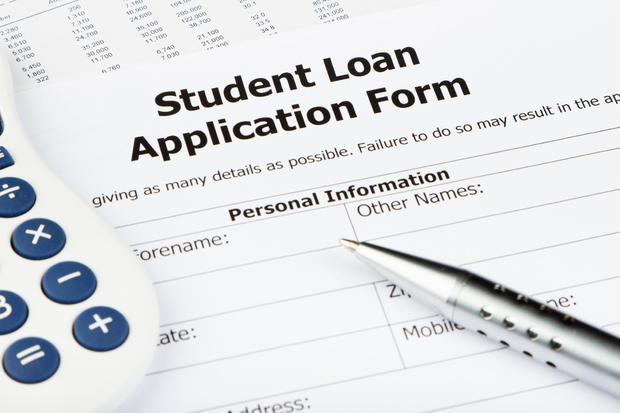When should you apply for student loans?
Summer is upon us, and while many students are enjoying a temporary break from their studies, others are busy securing financing for the fall semester. Generally, this involves two sources, federal and private student loans.
Ideally, you should first pursue your federal options, including grants, scholarships and federal student loans. Then bridge any remaining financial gaps between your school-related expenses and your federal aid with private student loans. If you decide to take out a private student loan to cover some of your college expenses, consider as many lenders as you can to find the best loan that addresses your needs.
Whether you're using federal or private student loans or both, it's essential to understand the deadlines so you can plan ahead. Applying early can help give you extra time to tackle any issues that come up and for the funds to be disbursed. Start by exploring your private student loan options here to see how much you're eligible to borrow.
When should you apply for private student loans?
"Students and their families should start to research college funding alternatives, including student loans, about a year before starting college," says Jay Fleischman, a student loan lawyer. "This gives students ample time to understand the different options and requirements, including federal and state aid deadlines."
Most experts recommend applying for private student loans after you've exhausted your federal student aid options. "After that, if you're looking to borrow private loans, you'd start applying in May through July, and once you accept your loans, they'll be disbursed to your college when you start," says Robert Farrington, a student loan expert and founder of The College Investor.
What are the deadlines for private student loans?
Unlike federal student loans, private student loans don't have a specific deadline or extensions. You can apply at any time. However, you should give yourself plenty of time. While many private lenders can approve your loan in minutes, some may request further information, and it could take several weeks to process and fund your loan.
If you know your college costs will exceed the federal student loan limits, it's wise to apply before your tuition is due. Farrington adds, "when it comes to private student loans, the earlier to start shopping, the better. You want to make sure you don't run into surprises with cosigners or other issues."
When should you apply for federal student loans?
It's generally a good idea to apply for federal student loans as soon as you begin planning for the college costs. Some experts even recommend applying for federal aid before you get accepted to a school.
Start by completing the Free Application for Federal Student Aid, more commonly referred to as FAFSA. Some federal student aid is awarded on a first-come, first-served basis, so it pays to submit your application promptly. Applying early can increase your chances of getting more federal aid and give you plenty of time to secure other financial resources like grants, scholarships or private student loans if needed.
"Federal student loans can be applied for at any time between the time they send in their deposit and about a month before their last Spring class," says Stuart Siegel the founder of College Tuition Solutions. "Most students apply for them in May or June, and the parents will see the amount of the loan credited to their bill sometime in July."
What are the deadlines for federal student loans?
In 2023, FAFSA opens on October 1, 2023, and the submission deadline is June 30, 2024. If your FAFSA requires verification, the deadline may be extended to give you time to update or make corrections. However, you must do so by September 14, 2024.
Keep in mind, many states and colleges have earlier deadlines and may require your FAFSA form sooner. The Department of Education recommends applying as soon as you can once the application period begins to maximize your chances of securing all of the financial aid available to you.
How to apply for a private student loan
"No matter the borrower, they should be aware of the total debt they are borrowing and the total cost of repayment upon graduation," says Elaine Rubin, director of corporate communications at Edvisors. "Borrowers should always have a grasp of the bigger picture—how much they will need to borrow to complete their program, their total monthly payment when it comes time to repay their debt, and how to build that into a realistic budget," Rubin adds.
If you're ready to apply for a private student loan, here are the steps to do so:
- Review a lender's credit requirements: Private student loan lenders typically require a good to excellent credit score (often in the mid-600s or higher), a stable income and a history of timely loan repayments to ensure you can manage the debt.
- Apply with a co-signer if necessary: If you're a student with limited or no credit history, you'll likely need a cosigner with good credit to help you qualify.
- Compare lenders: Since interest rates, repayment terms and borrower benefits vary by lender, it's wise to shop and compare loan offers to find the loan that best suits your financial needs and circumstances.




